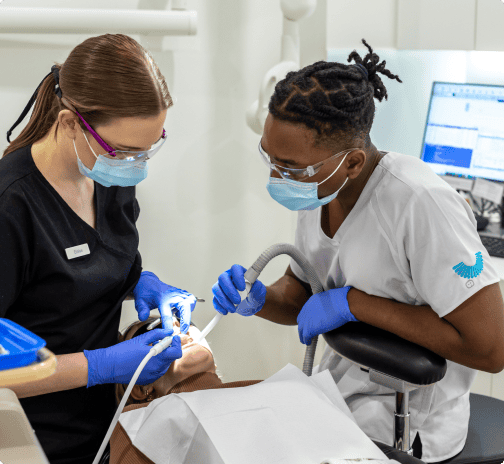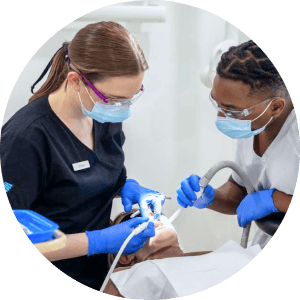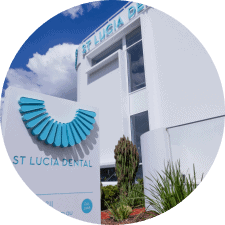
We accept all major health funds
and are a preferred provider for
We accept all major health funds and are a preferred provider for


Tooth pain and dental issues can occur unexpectedly and need immediate attention. The good news is, we’re here to help.
Whether you need a tooth filling, are dealing with a sudden toothache, a broken tooth, broken dentures or need a more complex procedures like a tooth extraction or replacement, our team is prepared.
If you have a dental emergency, contact us immediately. We are fully equipped to provide fast and effective treatment to make sure you get the care you need without delay.
Click ‘Book Now’ or give us a call to chat to our team.



Searching for ‘emergency dentist Brisbane’? We have plenty of time slots available for accidents. See our hours below:
Monday 8 am–6 pm
Tuesday 8 am–7 pm
Wednesday 8 am–6 pm
Thursday 8 am–6 pm
Friday 8 am–5 pm
Saturday 8 am–4 pm
Sunday Closed
If you have a dental emergency or are experiencing dental pain, please contact our team immediately on 07 3870 8811.
Here are some common dental emergencies:
Severe Toothache: Intense, unrelenting pain that doesn’t improve with over-the-counter painkillers may require immediate attention.
Broken or Chipped Tooth: Accidents or injuries that result in a broken, chipped or cracked tooth.
Knocked Out Tooth: A tooth that has been completely knocked out due to trauma.
Oral Infection: Signs of an oral infection include severe pain, swelling, fever, and a bad taste in the mouth. This condition requires prompt treatment to prevent the spread of infection and further complications.
Wisdom Teeth Pain: Discomfort or pain caused by impacted or misaligned wisdom tooth, often requiring immediate attention.
Lost Dental Fillings or Dental Crown: A filling or crown that falls out, leaving the tooth exposed and vulnerable.
Dental Implant Pain or Discomfort: Severe or persistent pain around the implant site.
Dental Abscess: A painful, swollen area in the mouth or gums that indicates an infection.
Swelling or Bleeding: Unexplained or severe swelling, bleeding, or injury to the gums, lips, or tongue.
Damaged Braces or Orthodontics: Broken wires or brackets causing discomfort or risk of injury.
Object Stuck Between Teeth: An object lodged between teeth that can’t be removed with floss.
Tooth Sensitivity: Sudden, severe sensitivity to hot or cold that doesn’t subside.
Jaw Pain: Severe pain or injury to the jaw, which may indicate a fracture or dislocation.
If your child has a dental emergency, try to stay calm. For a knocked-out tooth, rinse it gently and place it in milk or a saline solution. Contact your dentist immediately for advice and to arrange an emergency dental treatment.
A dental abscess will not heal on its own and requires professional treatment. An abscess is an infection that can spread if left untreated, leading to more serious health issues. Seek emergency dental care as soon as possible.
If you have a severe toothache, start by rinsing your mouth with warm water to cleanse the area. Gently floss around the tooth to remove any trapped food particles that might be causing the pain.
Over-the-counter pain relievers, such as ibuprofen or acetaminophen, can help manage the pain, but avoid placing aspirin directly on your tooth or gums. Applying a cold compress to the outside of your cheek can also reduce swelling and numb the area.
Avoid consuming extremely hot, cold, or sugary foods and drinks. Most importantly, contact your dentist immediately to describe your symptoms and arrange an emergency appointment, as a severe toothache could indicate a serious issue like an infection or abscess that requires prompt professional attention.
Yes, you should see a Brisbane dentist immediately if you have a broken tooth. First, rinse your mouth with warm water to clean the area and, if possible, collect any broken pieces of the tooth and place them in a clean container.
If there is bleeding, apply gauze to the area for about 10 minutes or until the bleeding stops. Over-the-counter pain medications can help manage pain, and a cold compress applied to the outside of your cheek can reduce swelling.
Avoid chewing with the broken tooth to prevent further damage. Contact your dentist as soon as possible to explain your situation and secure an emergency appointment. Prompt treatment is crucial to prevent infection and further complications.
To manage pain before your emergency treatment, use over-the-counter pain relievers, apply a cold compress to reduce swelling, and rinse your mouth with warm salt water. Avoid chewing on the affected side and stick to soft foods.
Mon, Wed & Thurs | 8am to 6pm
Tues | 8am to 7pm
Fri & Sat | 8am to 5pm
Sun | Closed
© 2024 St Lucia Dental. All rights reserved.